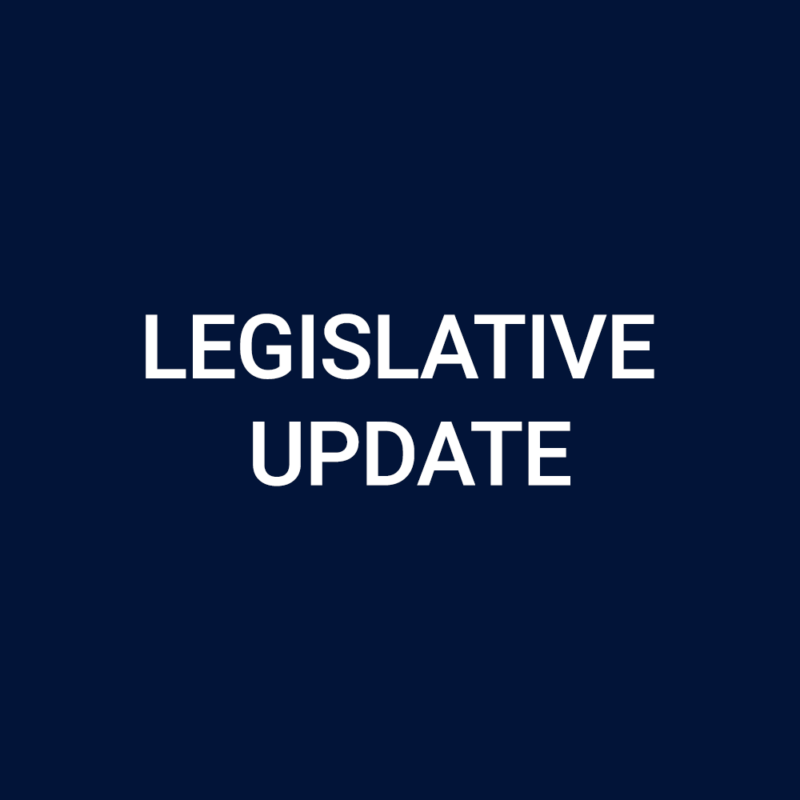The 101st Illinois General Assembly is in full swing and legislation is starting to move out of their respective committees.
Pensions
SB 3027 (McClure, R-Springfield) allows for active members in TRS to purchase up to two years of private or parochial school service credit if that service was rendered prior to becoming a public school teacher. The IEA supports this bill. The bill passed out of committee unanimously and will proceed to the Senate floor for debate. Our fact sheet is here.
Education Policy
HB 4306 (Harper, D-Chicago) requires charter schools to hire an outside financial auditor that is not affiliated with the charter school in any way, shape, form or fashion. IEA is in support of this bill. The bill passed out of committee unanimously and now moves to the house floor for debate.
HB 4417 (DeLuca, D-Chicago Heights) requires that a school board must have three public hearings, one per month, over three consecutive months before making a final decision to close a school. IEA is in support of this bill. The bill passed out of committee unanimously with a commitment from the sponsor to return the bill to the committee at a later date with an agreed upon amendment.
HB 4510 (Scherer, D-Decatur) provides that starting no later than Sept. 1, 2021, teachers rated as “excellent” or “proficient” would then be formally evaluated once every three years and informally evaluated once every two years. IEA is in support of this bill. The bill passed out of committee unanimously and now moves to the house floor for debate.
SB 2478 (Manar-D)
IEA supports this provision that allows retired teachers to return to work for 120 days, instead of 100 days in a school year, without impacting their retirement status. This provision is currently the law and this bill extends this provision until the year 2022 in an effort to assist with the substitute teacher shortage. The bill passed out of the Senate Education committee unanimously.
SR 982 (Morrison -D)
IEA supports this resolution that urges local emergency response planning officials to partner with school districts to disseminate information pertaining to safety threats related to the storage and transport of hazardous substances. This resolution is an effort to better inform parents, faculty and staff about any potential risk of these incidents. The resolution has been adopted.
Higher Ed
HB 3914 (Costa Howard, D-Lombard) provides that if a vacancy occurs on the board of trustees of a community college district, the secretary of the board must publish the vacancy through at least one public notice for a minimum of 30 days before the remaining board members meet to fill the vacancy. The IEA supports this bill. The bill passed out of the House Higher Education committee with a vote of 16-0.
TRIP/TRAIL Update:
The Governor’s fiscal year 2021 budget includes a restructuring of the funding for the health insurance plans for retired teachers and retired community college professionals. The Teachers’ Retirement Insurance Plan (TRIP/TRAIL) provides subsidized health insurance for retired teachers outside the city of Chicago. These benefits are funded by the state, school districts, active teachers and retirees. The College Insurance Program (CIP) provides subsidized health insurance benefits for community college retirees outside the city of Chicago. These benefits are funded by the state, active community college professionals, community college districts and retirees. While the two plans have similar funding sources, the structuring of these plans differ in several ways. The most significant difference is the way the contributions from these sources are adjusted annually to consider inflation and the increasing cost of health care. Under TRIP/TRAIL, contributions from the school districts, the state and active teachers are all adjusted based upon the projected funding needs of the plan. In addition, retiree premiums are adjusted annually. All four revenue sources for the TRIP/TRAIL plan cannot exceed an increase of 5 percent, year over year. This “escalator” has resulted in a plan that is fiscally healthy and currently up to date with paying the expenses of the plan. In fact, projections show that by fiscal year 2028, the plan will have an $800 million over and above the amount needed to maintain the current payment cycle. Currently, TRIP/TRAIL requires an estimated $450-$475 million on an annual basis to operate. In contrast, CIP does not have this escalator and as a result the plan has fallen into financial distress. The plan is projected to have a $300 million deficit by fiscal year 2028.
As a result, the Governor has proposed to alter the plans in the following ways:
Proposed TRIP/TRAIL changes beginning in fiscal year 2021:
- Reduce active teacher contribution rate to .80 percent from 1.24 percent.
- Reduce school district rate to .60 percent from .92 percent.
- Reduce fiscal year 2021 state contribution to $89 million, a reduction of $54 million.
- Maintain the 5 percent cap on all four funding sources of the program.
Proposed CIP changes beginning in FY 2021:
- Increase active community college professionals’ contribution to .80 percent from .50 percent.
- Increase community college contribution to .60 percent from .50 percent.
- Increase fiscal year 2021 state contribution by $38 million, for a total of $42 million.
- Establish an escalator clause for the revenue streams that will be capped at 5 percent.
The goal of these changes is for TRIP/TRAIL to maintain their current payment cycle while eliminating the backlog of bills under CIP by 2028. IEA is in discussion with the administration about these plans and will be monitoring this issue closely this session.

